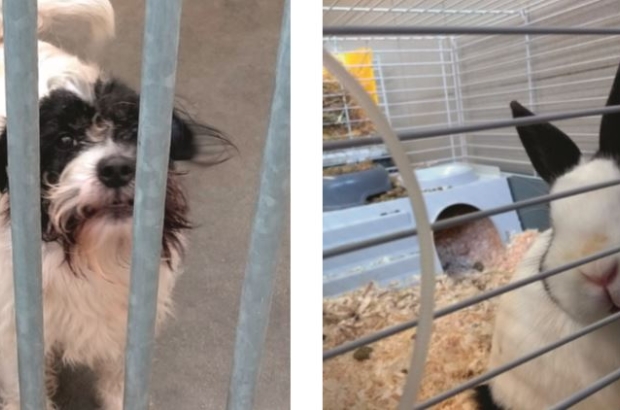- Daily & Weekly newsletters
- Buy & download The Bulletin
- Comment on our articles
Cost of living crisis sees more people abandoning their pets
The ongoing energy crisis, coupled with rising inflation, has prompted a cost-of-living crisis for many residents of Belgium that has led to growing numbers of people giving up their pets.
Animal shelters across the country are having to turn away more animals because their beds are full, shelter directors report.
Gaëtan Sgualdino, director of a shelter in La Louvière, Hainaut province, said that before 2020, the organisation used to receive 10-15 requests to surrender an animal per year.
Now they are receiving 10-15 abandonment requests per month.
“People no longer have the means to provide for their own needs, including those of their animals,” Sgualdino told RTBF.
“As a result, they call us and it's often quite moving, because they are faced with such difficulties that they can no longer feed their animals or meet their essential needs such as very expensive medical treatments. They ask us to take over but we have no more space and this is the case in many shelters.”
Another reason shelters are full to capacity is because pet adoptions have declined sharply over the years.
“The situation is very complicated, we are down 40% when it comes to adoptions in our shelter and other shelters are also affected by this trend,” said Sgualdino.
“People are excessively reluctant to adopt at this time of year, and yet it is the only way to get animals out of the shelters.”
Caring for an animal can be expensive for a family that is already struggling to pay basic household bills: providing for a dog comes with an estimated cost of around €800 per year, and the figure is €500 per year for a cat.
Sgualdino urges families to think hard before choosing to adopt a pet, saying that the euthanasia that unfortunately takes place in some shelters (but not his), “each time is the fault of people who have adopted an animal without thinking”.
Animal adoptions spiked during the coronavirus pandemic – the so-called “pandemic puppies”. But as life returned to normal, many people found caring for their new animal too expensive or inconvenient and now the abandonment of pets has likewise risen.
Shelters for larger animals, such as farm animals, are seeing similar crowding struggles.
Non-profit Le rêve d'Aby takes in mistreated horses and farm animals including cows, sheep, pigs and poultry. President Sophie Locatelli said she had never experienced such a situation.
“I think that the crisis has a lot to do with it, but as far as adoptions are concerned, this is the first time that I have not had any adoption requests,” said Locatelli.
“There is probably a feeling of fear among the population that they don't have enough money to take care of these animals, which require large infrastructures. But I hope that this fear will disappear and that our animals will find families.”



















